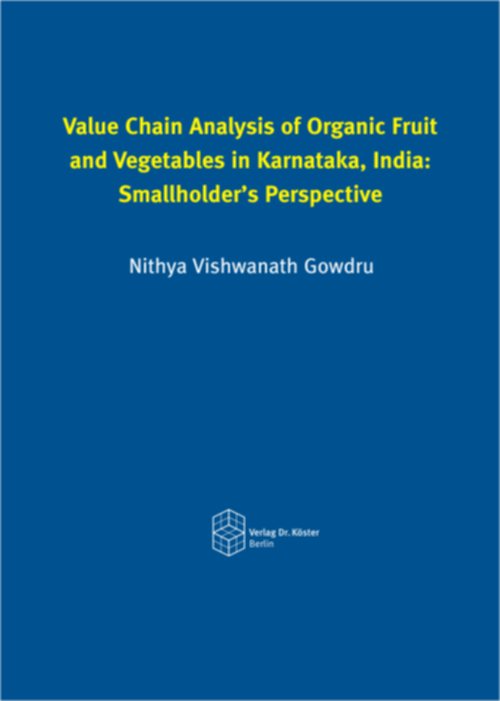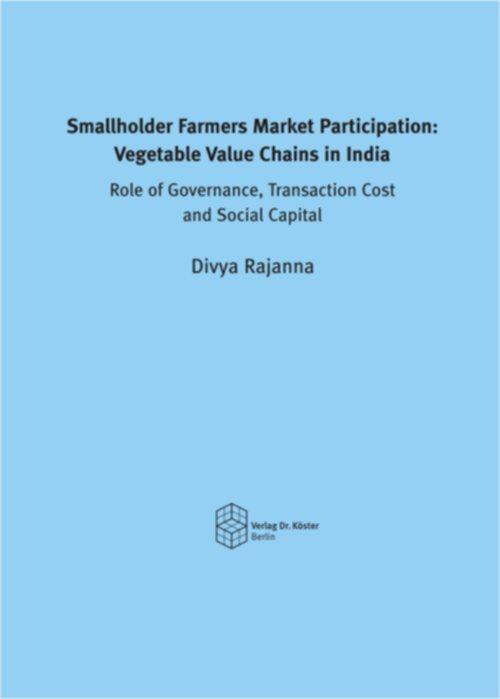Agriculture is the main occupation and forms the backbone of the Indian economy. The livelihood of many rural households, majorly constituting small and marginal farmers depends on agriculture which signifies the importance of agriculture sector in the country. The study focused on smallholder farmers who face many constraints both in production and marketing. Cultivation of commercial crops like vegetables can be a pathway to the economic success and better livelihood of the smallholder farmers. The research has analysed on factors determining the smallholder farmer’s market participation in vegetable value chains. An integrated framework guided the study by revising the value chain concepts, transaction cost theory, social capital theory and governance aspects to understand the market participation of smallholder farmers. The framework explains on the business relationships of the value chains by providing a better understanding of the horizontal and vertical linkages of the value chain actors. For the comparative analysis of the study, we chose three marketing channels namely, cooperative, regulated and conventional. The study area, Bangalore Rural, Chikkaballapur and Kolar has been selected purposively due to the presence of different marketing channels and the conditions favourable for growing vegetables. Data were randomly collected from the respondents mainly through face to face interviews.
WeiterlesenThe study employed mixed method approach in exploring research objectives. The understanding of the input linkages, output linkages, comparative analysis of transaction cost and social capital across the three governance structures is described using a qualitative approach. The causalities are explained using the quantitative approach. Findings of the study indicated that the farmers do not effectively utilise the critical inputs either due to lack of availability or credit. The dominant governance structure, where many farmers are involved is a regulated market which is part market-based and part relation-based, and it is followed by cooperative marketing. The results showed that the farmers face different transaction costs, and it influences the farmer’s selection of marketing channels. Conventional marketing incurs more information and search cost while regulated marketing bears more negotiation cost, cooperative marketing incurs monitoring cost on the quality of the produce. The next significant finding i that cooperative farmers possess more social capital than other farmers and it facilitates in information exchange and has a positive influence on cooperative marketing. Overall, from the results, the study concludes that transaction costs affect the smallholder farmers’ market participation during which enhancing social capital has the potential for better access and inclusion to high-value markets.


